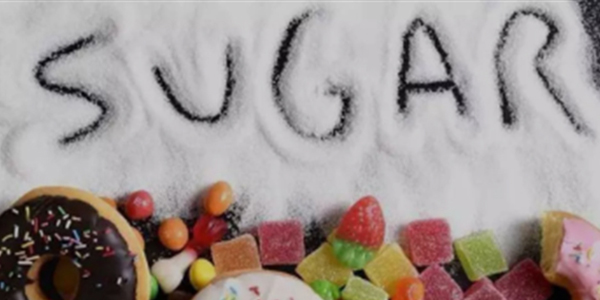









发布时间:2020年09月27日 来源:管理员
 立即收藏
立即收藏

摄糖会引起多动症吗?
虽然有不少的家长怀疑摄入过多的糖会影响孩子的行为,但上世纪80年代和90年代进行的研究表明,摄糖与多动症和注意力不集中之间没有联系。
这些研究比较了糖(蔗糖)与人工甜味剂(天冬甜素阿斯巴甜或糖精)在一段时间内对儿童的影响。除了糖以外,研究人员没有从儿童饮食中去除其他高血糖指数和精制碳水化合物。 人体会把食物解成单糖,比如面粉,玉米淀粉,白薯和果汁等。因此,在该研究中,儿童的饮食中仍然有大量的糖,不能完全剔除糖类。你能相信吗?一份白面包和一份炸薯条几乎完全由高血糖指数、精制碳水化合物和脂肪组成,没有什么蛋白质。所以,从饮食中去除糖并用人工甜味剂代替并不见得会有益于多动症患者。
你大脑的中含糖量
在耶鲁大学(Yale)针对健康儿童进行的一项研究中,研究人员测量了这些儿童在饮用含糖饮料((含葡萄糖的无咖啡因;两罐12盎司的可口可乐)后的血糖、各种激素和神经递质的变化水平。研究人员将这些儿童与饮用健怡可乐(含糖量低)的对照组儿童进行了比较。在健怡可乐组中,血糖值分别出现了预期的高峰和低谷——血糖从禁食时的83在喝可乐后达到了135,4个小时后,血糖水平重回低值61。当血糖降至最低水平时,血液中的肾上腺素飙升至喝可乐之前的5倍之多。当肾上腺素飙升时,儿童常感到恐慌、颤抖和虚弱,心跳加速。我们通常认为这是低血糖的症状,但实际上是由于身体中血糖下降而产生的肾上腺素激增。
这些研究人员还研究了儿童血糖下降时的脑电活动,研究发现,一旦血糖降到75毫克/升以下,就会对大脑活动产生一定影响,并随着血糖的降低,情况变得更糟。
睡眠、摄糖与多动症的关系
澳大利亚有一项有趣的研究,该研究观测了没有服用药物的多动症儿童的饮食和睡眠状况。结果发现高糖饮食的多动症儿童睡眠质量较低,最常见的是呼吸问题和盗汗。

长期摄糖最终会导致多动症吗?
来自科罗拉多大学的科学家认为,长期吃糖可能会给大脑造成影响,并且短期内避免摄糖也无法解决问题。从理论上讲,摄糖可能会导致大脑发生化学性的变化,最终可能导致多动症。原因有以下几点:
1.糖会使大脑释放多巴胺(多巴胺被认为与多动症有关的化学物质之一)摄糖会使大脑释放大量多巴胺,多巴胺会给我们带来快感,不自觉你已经吃了一个甜甜圈。
2.大脑会通过减少多巴胺受体的数量恢复大脑中多巴胺的正常,但这也将会需要更多的糖,所以你再一次吃了一个甜甜圈。
3.如果持续摄糖,大脑细胞因多巴胺的连续刺激而减少。 多巴胺活性降低也是多动症的原因之一,这也可能导致暴饮暴食和摄糖过瘾。这时候,你就会不停的吃甜甜圈。
多动症和肥胖
患有多动症的儿童超重或肥胖的几率是儿童的两倍,反之亦然。多动症会导致暴饮暴食或肥胖吗?是否有一些关于肥胖导致多动症的案例?还是两种情况都有?德国的一项大型流行病学研究中表示:患有多动症的儿童比健康的同龄人更容易“失去对饮食的控制”和“食物主宰生活”。高血糖指数和精制碳水化合物的摄入与肥胖之间有着密切的联系。然而,由于我们还没有任何关于精制碳水化合物和多动症的研究,所以不知道精制碳水化合物是否会导致肥胖症或多动症。
有哪些多动症患者可以吃的低碳水食物?
一项针对儿童行为与生酮饮食(一种特殊的低碳水化合物饮食)的关系的研究发现,与正常饮食的儿童相比,生酮饮食的儿童的注意力和社交问题有了明显的改善。该项研究的研究对象使患有癫痫病的儿童,而不是多动症(这里行为改善不是指癫痫儿童的发病次数减少。)
关于摄糖的“底线”
与人造甜味剂相比,研究还没有发现糖本身与多动症之间存在联系。然而,探究糖本身是否是多动症的罪魁祸首是没有意义的。因为糖和其他精制食物和高糖的碳水化合物对人体产生的影响是一样的,所以探究精制碳水化合物是否会增加多动症风险更有意义。
我们现在知道的是:
1.精制碳水化合物,如糖,使大脑和身体种的荷尔蒙像坐过山车一样忽高忽低,最终导致恐慌症状和大脑功能障碍。
2.摄入精制碳水化合物会增加胰岛素耐受性、胰岛素升高、糖尿病、心脏病和肥胖的风险。
3.胰岛素可以降低大脑中的多巴胺水平
所以对于每个人,包括患有多动症的人来说,要尽量避免摄入过多的精制碳水化合物,这一点是非常有益处的。
健康饮食从早餐开始
精制碳水化合物包括糖、蜂蜜、各种面粉、枫糖浆、玉米糖浆、果汁。“健康美式早餐”往往是精制碳水化合物含量最高并且蛋白质含量最低的一餐-,包括华夫饼、松饼、吐司、速溶燕麦片、谷类食品、百吉饼、橙汁等。对于每个家庭来说,健康饮食从早餐是十分重要的,但是大多数孩子每天都吃太多的糖。果汁、巧克力牛奶、格兰诺拉麦片、甜谷类食品、自制甜点、全麦松饼和果汁糖果对儿童来说都不是健康食品。所有这些食物中的糖含量都很高,摄入过多的话高胰岛素水平升高,并且导致体内炎症,这不是你用肉眼看到的那种炎症,只能通过在研究实验室的特殊血液测试来检测出这种炎症。时间长了,这种微小的炎症会对身体的所有器官包括大脑造成非常大的损害。
英文原文:
Sugar and ADHD
Does sugar cause ADHD symptoms?
While many parents suspect that sugar plays a role in their children’s behavioral patterns, short-term studies conducted in the 1980’s and 1990’s were not able to show a connection between sugar and hyperactivity or attention problems.
These studies compared the effects of sugar (sucrose) to artificial sweeteners (aspartame/Nutrasweet® or saccharin/Sweet ’n Low®) on children over a period of days to a few weeks. However, the problem is this: researchers did not remove other high glycemic index and refined carbohydrates from children’s diets, only sugar. There are many foods which rapidly break down into simple sugars in the body, such as flour, corn starch, white potato, and fruit juice. Therefore there was still a significant amount of sugar in the diets of all of the children in these studies:
Can you believe it? A breakfast of white bread and a lunch of French fries? This diet consisted almost entirely of high glycemic index refined carbohydrate and fat, and almost no protein. So, all we really know is that removing sugar from a junky diet and replacing it with artificial sweeteners does not make ADHD symptoms better.
This is your brain on sugar
In a Yale study of healthy children without ADHD, blood levels of glucose and a variety of hormones and neurotransmitters were measured before and after a sugary drink (decaffeinated cola sweetened with glucose; equivalent to two 12-oz cans of Coca-Cola).
These children were compared to a control group of children drinking a diet cola. In the sweet cola group, the expected spike and drop in blood sugar occurred: blood sugar rose from a fasting level of 83, to a peak of 135 after the cola, then to a valley of 61 about 4 hours after drinking the cola (values are in mg/dl).
When blood sugar bottomed out, blood levels of epinephrine skyrocketed to 5 times higher than they had been before the cola.
When this occurred, the children felt panicky—shaky and weak with a pounding heart. These are the symptoms we typically associate with “hypoglycemia”, but they are actually due to the surge of fight or flight hormone produced by the body in reaction to falling blood sugar, not due to the low blood sugar itself.
These same researchers also studied the electrical activity of the brains of children as their blood sugar dropped.
They found that problems with brain activity could be seen as soon as the blood sugar dropped to below 75 mg/dl, getting worse as it fell even lower.
Sleep, Sugar and ADHD
An interesting Australian study [Blunden 2011] examined the diets and sleep patterns of children with ADHD who were not taking medications. Children with high-sugar diets were more likely to have disrupted sleep, most commonly breathing problems and night sweats.
Does chronic sugar consumption eventually lead to ADHD?
A group of scientists at the University of Colorado thinks that eating sugar on a regular basis may cause long-term problems for the brain that can’t be corrected simply by removing sugar from the diet in short-term studies [Johnson 2011]. Theoretically it is possible that the chronic use of sugar could cause changes in brain chemistry that may eventually lead to ADHD, but there have not yet been any studies exploring this question. Here is their reasoning:
1. Sugar is a powerful trigger for dopamine release in the brain (dopamine is one of the brain chemicals thought to be involved in ADHD) Eating sugar floods brain cells with dopamine, which feels good.
2. The brain tries to bring dopamine activity back to normal by reducing the number of dopamine receptors, so it will then take even more sugar to produce the same effect (tolerance). “Mmmm…two donuts…”
3. If a person keeps eating sugar, there may be times when brain cells run low on dopamine from being stimulated so frequently. Low dopamine activity is one of the possible causes of ADHD symptoms. This vicious cycle may also lead to binge eating and sugar addiction. “Donut…donut…donut…donut…Marge, we’re out of donuts!”
ADHD and Obesity
Children with ADHD are about twice as likely to be overweight or obese and vice versa. Is there something about ADHD that causes overeating or obesity? Is there something about obesity that causes ADHD? Or does it go both ways? In a large German epidemiological study:
“…children with ADHD more often endorsed ‘‘lost control over eating’’ and ‘‘food dominates life’’ than their peers without ADHD…” (regardless of body weight). [Erhart 2012]
There is a strong connection between the consumption of high glycemic index and refined carbohydrates and the obesity epidemic. However, because we do not yet have any studies of refined carbohydrate and ADHD, we do not yet know if refined carbohydrate may be one of the bridges connecting ADHD and obesity.
What about low-carb diets for ADHD?
one study of the ketogenic diet (a special low-carbohydrate diet) on children’s behavior found small but significant improvements in attention and social problems compared to children eating a regular diet. These were children with seizure disorders, not ADHD. [The differences in behavior were not due to the fact that these children had many fewer seizures than the children eating a regular diet.]
The bottom line about sugar
Studies of sugar itself, compared to artificial sweeteners, have not found a connection between sugar and ADHD. However, wondering whether sugar per se is a culprit in ADHD may not be the right question to ask. Since sugar and other refined and high glycemic index carbohydrates behave the same way in the body, it would make more sense to ask whether refined carbs, as a food group, increase risk for ADHD, and as of today there are no studies exploring this possibility.
However, here’s what we do know:
· Refined carbs such as sugar put the brain and body on a hormonal roller coaster that can cause panic symptoms and brain dysfunction.
· Diets high in refined carbs increase risk for insulin resistance, high insulin levels, diabetes, heart disease, and obesity.
· Insulin can reduce dopamine levels in the brain.
However, it would make sense for everyone, including those with ADHD, to stay off of this hormonal roller coaster as much as possible.
It all starts with breakfast
Refined carbohydrates include sugar, honey, all kinds of flour, maple syrup, corn syrup and even fruit juice (see a list of refined carbs) In fact, the typical “healthy American breakfast” tends to be the meal that is highest in refined carbs and lowest in protein—waffles, muffins, toast, instant oatmeal, cereals, bagels, orange juice, etc. Making changes to breakfast is the most important place to start for families, but most children eat far too much sugar all day long. Contrary to popular belief, fruit juice, chocolate milk, granola bars, sweetened cereals, home-made desserts, whole-grain muffins, and fruit juice-based candies are not healthy foods for children. All of these foods are very high in sugars, which are strongly associated with high insulin levels and inflammation throughout the body. This is not the kind of inflammation you can see with the naked eye; it can only be detected by special blood tests in research labs. Over time, this microscopic inflammation can be very damaging to all of the organs of the body, including the brain.
For more information about carbohydrates and health, check out my carbohydratespage. Learn how to stabilize blood sugar on my carb sensitivity diets page.
For further reading, I suggest my post, “Attention! Is Your Diet Causing ADHD?” and “Food Sensitivities and ADHD.”
(英文来源:http://www.diagnosisdiet.com/sugar-and-adhd/)
点击查看原文
